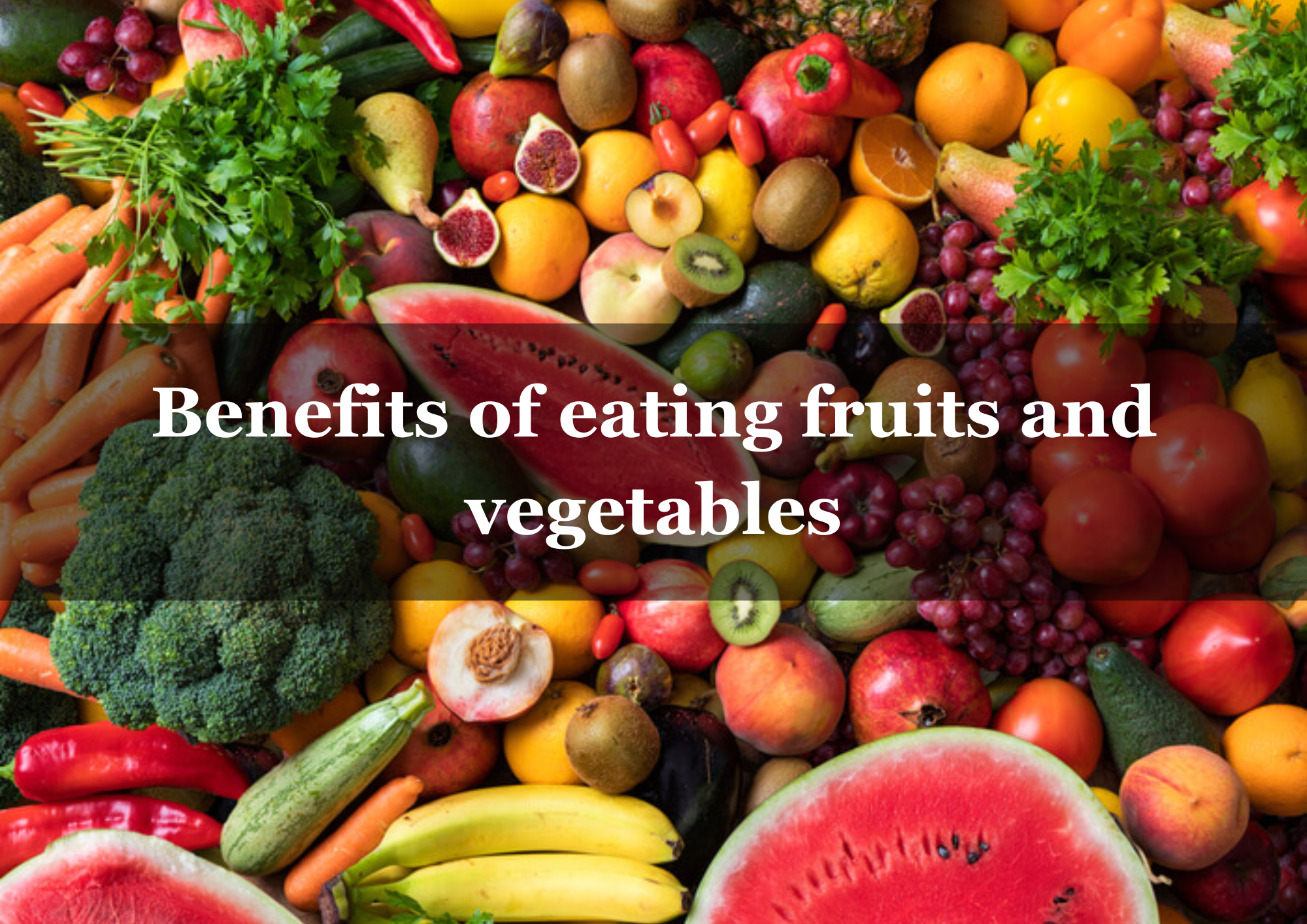
Benefits of eating fruits and vegetables
Fruits and vegetables are nature’s gift to humanity, offering a cornucopia of nutrients, vitamins, minerals, and antioxidants essential for optimal health and well-being. From vibrant berries bursting with antioxidants to leafy greens brimming with vitamins, fruits and vegetables provide a myriad of benefits for overall health, disease prevention, and longevity. In this article, we delve into the abundant advantages of incorporating fruits and vegetables into your diet and why they should be the cornerstone of a healthy eating pattern.

Source: NDTV Food
Nutrient-Rich Powerhouses
Fruits and vegetables are nutrient-rich powerhouses, packed with vitamins, minerals, and phytochemicals that nourish the body and support vital functions. They are excellent sources of essential nutrients such as vitamin C, vitamin A, potassium, folate, and fiber, all of which play crucial roles in maintaining health and preventing disease.
Disease Prevention and Management
Consuming a diet rich in fruits and vegetables is associated with a lower risk of chronic diseases such as heart disease, stroke, cancer, diabetes, and obesity. The antioxidants and phytochemicals found in fruits and vegetables help neutralize harmful free radicals, reduce inflammation, and protect cells from damage, lowering the risk of chronic conditions and promoting overall health.
Heart Health
Fruits and vegetables are heart-healthy foods that support cardiovascular health and reduce the risk of heart disease and stroke. They are low in saturated fat and cholesterol and rich in heart-healthy nutrients such as potassium, fiber, and antioxidants.
Weight Management
Fruits and vegetables are low in calories and high in fiber, making them ideal foods for weight management and appetite control. Their high fiber content helps promote satiety, reducing hunger and calorie intake, while their low energy density allows you to eat larger portions without consuming excess calories.
Digestive Health
Fruits and vegetables are rich in dietary fiber, which is essential for maintaining digestive health and regularity. Fiber helps promote bowel movements, prevent constipation, and reduce the risk of digestive disorders such as diverticulosis, hemorrhoids, and irritable bowel syndrome (IBS). Additionally, the natural enzymes and prebiotics found in fruits and vegetables support a healthy gut microbiome, promoting optimal digestion and nutrient absorption.
Improved Immune Function
The vitamins, minerals, and antioxidants found in fruits and vegetables play a critical role in supporting immune function and defending the body against infections and illnesses. Vitamin C, in particular, is known for its immune-boosting properties, while vitamin A supports the integrity of mucous membranes and skin barriers. Including a variety of colorful fruits and vegetables in your diet can help strengthen your immune system and reduce the risk of infections.
Bone Health
Certain fruits and vegetables are rich in nutrients that are essential for maintaining strong and healthy bones. Foods such as leafy greens, broccoli, oranges, and kiwi are excellent sources of calcium, vitamin K, magnesium, and phosphorus, all of which play crucial roles in bone formation, density, and strength. Consuming a diet rich in fruits and vegetables can help prevent osteoporosis and reduce the risk of fractures and bone-related disorders.
Skin Health and Aging
Fruits and vegetables contain a variety of vitamins, minerals, and antioxidants that support skin health and slow down the aging process. The antioxidants found in colorful fruits and vegetables help protect the skin from damage caused by harmful free radicals, reducing the risk of wrinkles, age spots, and other signs of aging. Additionally, the vitamins and minerals found in fruits and vegetables promote collagen production, skin elasticity, and cellular repair, resulting in healthy, glowing skin.
Mental Well-being and Cognitive Function
Consuming a diet rich in fruits and vegetables is associated with better mental well-being, cognitive function, and mood. The nutrients found in fruits and vegetables, such as vitamin E, folate, and omega-3 fatty acids, support brain health and neurotransmitter production, reducing the risk of cognitive decline and age-related cognitive disorders. Additionally, the antioxidants and phytochemicals found in fruits and vegetables have been shown to reduce inflammation and oxidative stress in the brain, improving mood and reducing the risk of depression and anxiety.
Longevity and Quality of Life
Numerous studies have demonstrated the association between fruit and vegetable consumption and increased longevity and quality of life. People who consume diets rich in fruits and vegetables tend to live longer, healthier lives with a lower risk of chronic diseases and disabilities. By incorporating plenty of fruits and vegetables into your diet, you can improve your overall health, well-being, and longevity, allowing you to enjoy a vibrant and fulfilling life well into old age.
Fruits and vegetables are nutritional powerhouses that offer a multitude of benefits for overall health and well-being. From disease prevention and weight management to digestive health, immune function, and skin health, the advantages of eating fruits and vegetables are extensive and well-documented. By including a colorful variety of fruits and vegetables in your daily diet, you can nourish your body, support vital functions, and enhance your quality of life. So, make fruits and vegetables the stars of your plate and reap the abundant benefits they have to offer for your health and longevity.




